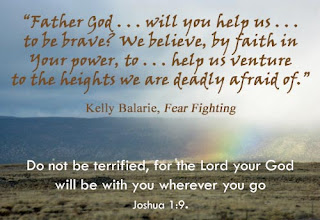Later I’d look back and recognize that I’d turned a corner with God and my husband that afternoon.
But the fulfillment of that would take months. In the meantime, I was exhausted—drained, shattered, feeling my way through a fog.
I could do nothing except carry out my duties like a robot, but—and this is the most important—at the same time, I was keenly aware that I was waiting on God.
The Bible tells us, often, to wait on God. But what does it mean to wait on God?
It’s not giving up. Neither is it being aloof. Waiting on God is not being in denial. It is not an escape. It’s not about keeping our distance from God.
Waiting on God is not being passive, though it can involve a degree of passiveness.
Sue Monk Kidd writes, “I had tended to view waiting as mere passivity. When I looked it up in my dictionary however, I found that the words passive and passion come from the same Latin root, pati, which means ‘to endure.’ Waiting is thus both passive and passionate. It’s a vibrant contemplative work.” (When the Heart Waits)
Waiting on God is a deliberate undertaking, an alone time of seeking intimacy with God. Jesus did that at the Mount of Olives (Luke 22:39-44). He waited on God for forty days in the desert wilderness (Luke 4:1-13). Another time he sent his disciples away on a boat, disbursed the multitudes, and, alone, traveled a mountain to pray—all night (Luke 6:12).
It’s a time to do what God asks of us: “Be still and know that I am God” (Psalm 46:10).
It’s a time of saying, “Speak, Lord, for your servant is listening” (1 Samuel 3:9). Waiting on God is talking less and listening more. It’s quieting our own voice and, instead, actively listening for and to Him.
Oswald Chambers wrote of something of what that’s like, of the person who “meets God at every turn, hears Him in every sound, sleeps at His feet, and wakes to find Him there.” Chambers goes on to describe it as the person “developing his power of knowing God,”—such a vitally important pursuit. (Christian Disciplines)
Waiting on the Lord implies an active back and forth with God: “Out of the depths I cry to you. . . . O Lord, hear my voice. Let your ears be attentive to my cry” (Psalm 130:1-2).
It’s characterized by hope. “I wait for the Lord, my soul waits, and in his word I put my hope. My soul waits for the Lord more than watchmen wait for the morning. . . .” (Psalm 130:1-6) and “. . . put your hope in the Lord, for with the Lord is unfailing love and with him is full redemption” (Psalm 130:7).
Waiting on God is trusting Him—it’s a confident expectancy. “We wait in hope for the Lord; he is our help and shield. In him our hearts rejoice, for we trust in his holy name” (Psalm 33:20-21).
That means that waiting on God is an act of faith.
Sue Monk Kidd writes of being in a “place of fertile emptiness” (When The HeartWaits). I like that: “Fertile emptiness.” Waiting on God can be rich with possibilities. It can be a creative time, a transformative time, a productive time leading to fruitfulness.
But that takes time. And it can involve growing pains because it can require us to humble ourselves, question ourselves, and then reassess what we believe and expect and assume and hope for. It requires us to be content in an in-between time, in transition, not knowing how things will turn out. That means waiting on God can be tumultuous. It can be scary.
But it can also be a sacred time, a time of the renewing of the mind (Romans 12:2), of being teachable, of softening the heart; a time of increased clarity—all of them can inspire hope, direction, and peace.
Waiting on God can close one chapter in life and open a good, new one.
I would later find out
that on that sizzling afternoon in
Lomalinda,
standing—in my sweat-drenched clothes—
in that low, little house
that I was committed to making into our
young family’s home,
listening to wind and crickets
and an occasional motorbike in the
distance
and maybe a haunting whooshing cry
from a howler monkey,
God had already begun leading me to a
good place,
a firm place on which to stand—
and on which to live and thrive.
He was already working to help me mature
as a wife,
mother, and His daughter.







